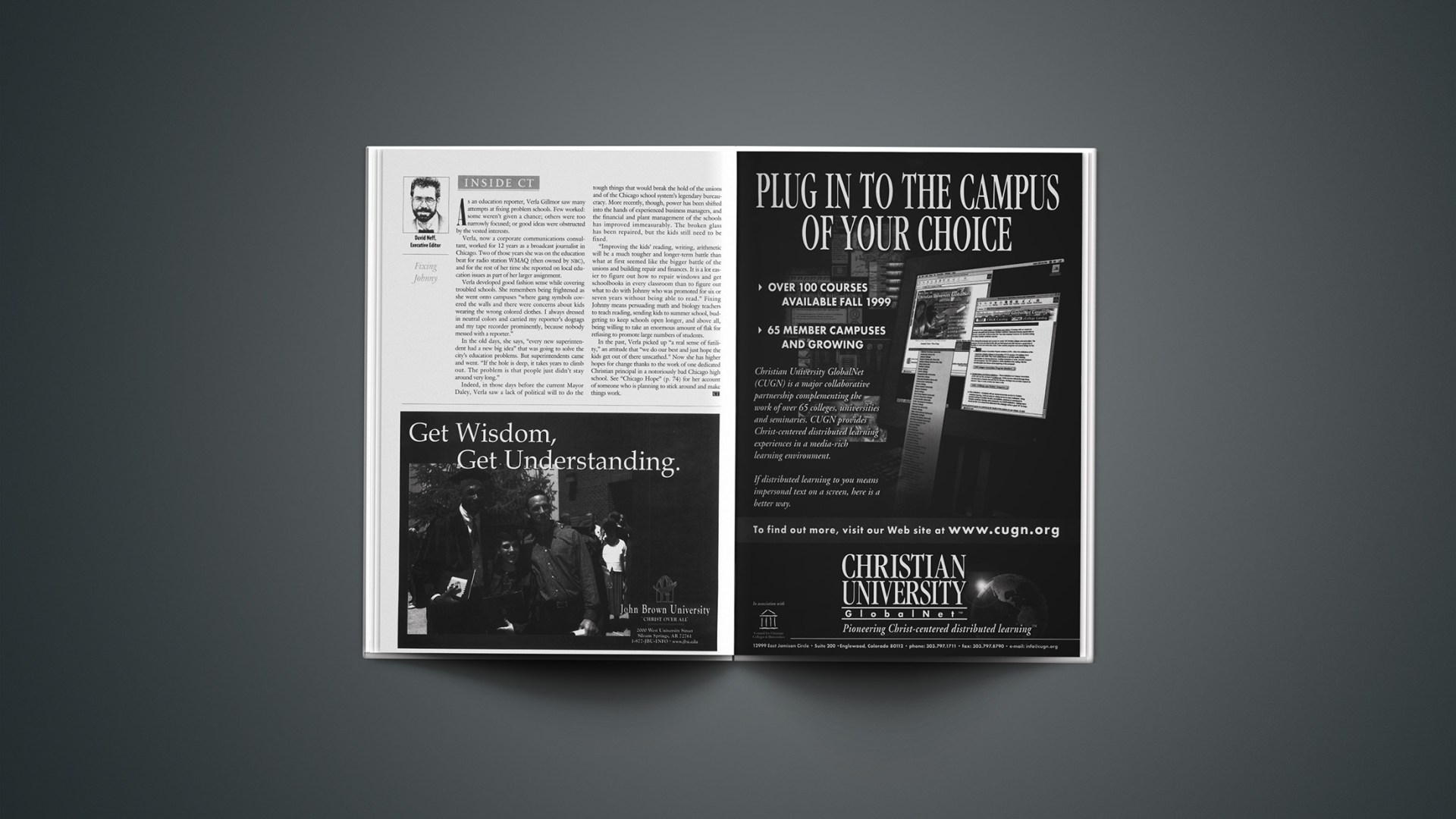As an education reporter, Verla Gillmor saw many attempts at fixing problem schools. Few worked: some weren’t given a chance; others were too narrowly focused; or good ideas were obstructed by the vested interests.
Verla, now a corporate communications consultant, worked for 12 years as a broadcast journalist in Chicago. Two of those years she was on the education beat for radio station WMAQ (then owned by NBC), and for the rest of her time she reported on local education issues as part of her larger assignment.
Verla developed good fashion sense while covering troubled schools. She remembers being frightened as she went onto campuses “where gang symbols covered the walls and there were concerns about kids wearing the wrong colored clothes. I always dressed in neutral colors and carried my reporter’s dogtags and my tape recorder prominently, because nobody messed with a reporter.”
In the old days, she says, “every new superintendent had a new big idea” that was going to solve the city’s education problems. But superintendents came and went. “If the hole is deep, it takes years to climb out. The problem is that people just didn’t stay around very long.”
Indeed, in those days before the current Mayor Daley, Verla saw a lack of political will to do the tough things that would break the hold of the unions and of the Chicago school system’s legendary bureaucracy. More recently, though, power has been shifted into the hands of experienced business managers, and the financial and plant management of the schools has improved immeasurably. The broken glass has been repaired, but the kids still need to be fixed.
“Improving the kids’ reading, writing, arithmetic will be a much tougher and longer-term battle than what at first seemed like the bigger battle of the unions and building repair and finances. It is a lot easier to figure out how to repair windows and get schoolbooks in every classroom than to figure out what to do with Johnny who was promoted for six or seven years without being able to read.” Fixing Johnny means persuading math and biology teachers to teach reading, sending kids to summer school, budgeting to keep schools open longer, and above all, being willing to take an enormous amount of flak for refusing to promote large numbers of students.
In the past, Verla picked up “a real sense of futility,” an attitude that “we do our best and just hope the kids get out of there unscathed.” Now she has higher hopes for change thanks to the work of one dedicated Christian principal in a notoriously bad Chicago high school. See “Chicago Hope” (p. 74) for her account of someone who is planning to stick around and make things work.
Copyright © 1999 Christianity Today. Click for reprint information.










